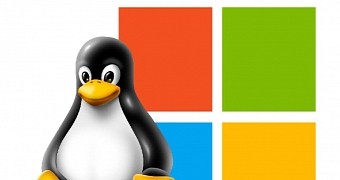Linux has long been considered a worthy alternative to Windows, and it’s also not a secret that so many people actually performed the switch to the open-source world for various reasons, starting with the desire for a completely-free operating system and ending with the search for increased security.
Judging from the market share statistics that research firms provide every month, however, the Linux world hasn’t necessarily benefited substantially from this transition from Windows.
In March, for example, Windows had a global market share of 89.21%, which means that nearly 9 in 10 PCs out there were running Microsoft’s operating system. For comparison, Linux secured a 1.36% market share, which means that not even 1 PCs in 10 was on Linux.
But leaving aside these statistics, it’s not a secret that many of those who are now truly committed to the world of Linux are former Windows users. And at the same time, it’s also very well known that some of the users part of the power user Windows community are also considering a switch to Linux as we speak.
A number of those who eventually try out Linux, however, come back to Windows, typically only a few days after installing the operating system on their devices. And there are so many reasons for this, including things like hardware and software issues, bugs they don’t know how to fix, or simply an experience that’s not necessarily familiar.
A reddit discussion thread where users debate the reasons to return to Windows has gone viral recently. And people share their stories on the migration to Linux, many explaining that sticking with Microsoft isn’t such a bad thing, despite things that pushed them to alternative operating system, such as telemetry services.
“My experiences with Linux have always ended up with me spending hours just trying to get basic things working. Mint: why is my trackpad all choppy? Ubuntu: why isn't my calendar synching? Why does my desktop image keep appearing on the lockscreen? KDE why doesn't windows+d not take me to desktop? Pop os: why doesn't my taskbar appear? How do I get chromium to react to swipe gestures? These are just single examples but I always end up on these forums with answers from 2017 where I am entering random terminal codes, installing packets that I have no idea what they do, and praying that it works. It just gets exhausting when I just need things to work so that I can work,” the thread starter explains.
At first glance, many of the users who return to Windows just don’t give enough time to Linux and expect a straightforward experience from one end to another. And of course, some expect Linux to work similarly to Windows, something that’s obviously not possible in every regard for various reasons.
“I have tried VERY hard to get away from Windows but I just can't... Gaming is very important in my life and Linux (despite having hugely increased it's gaming capabilities in the last 2 years) just isn't there yet... Also some basic stuff like external hard drives that don't connect automatically when you turn on your PC.... Basic stuff that just annoyed me a lot,” someone says.
So at the end of the day, the switch from Windows to Linux and then back to Windows might actually explain the market share above. Despite many people migrating to Linux, many actually return, eventually learning to accept the drawbacks of Microsoft’s operating system.
And that’s why we’re asking you, the Linux user. Is it really that hard to make the switch from Windows to Linux? What’s the best advice for someone looking into giving up on Windows?
Share your comments in the box after the jump.

 14 DAY TRIAL //
14 DAY TRIAL //